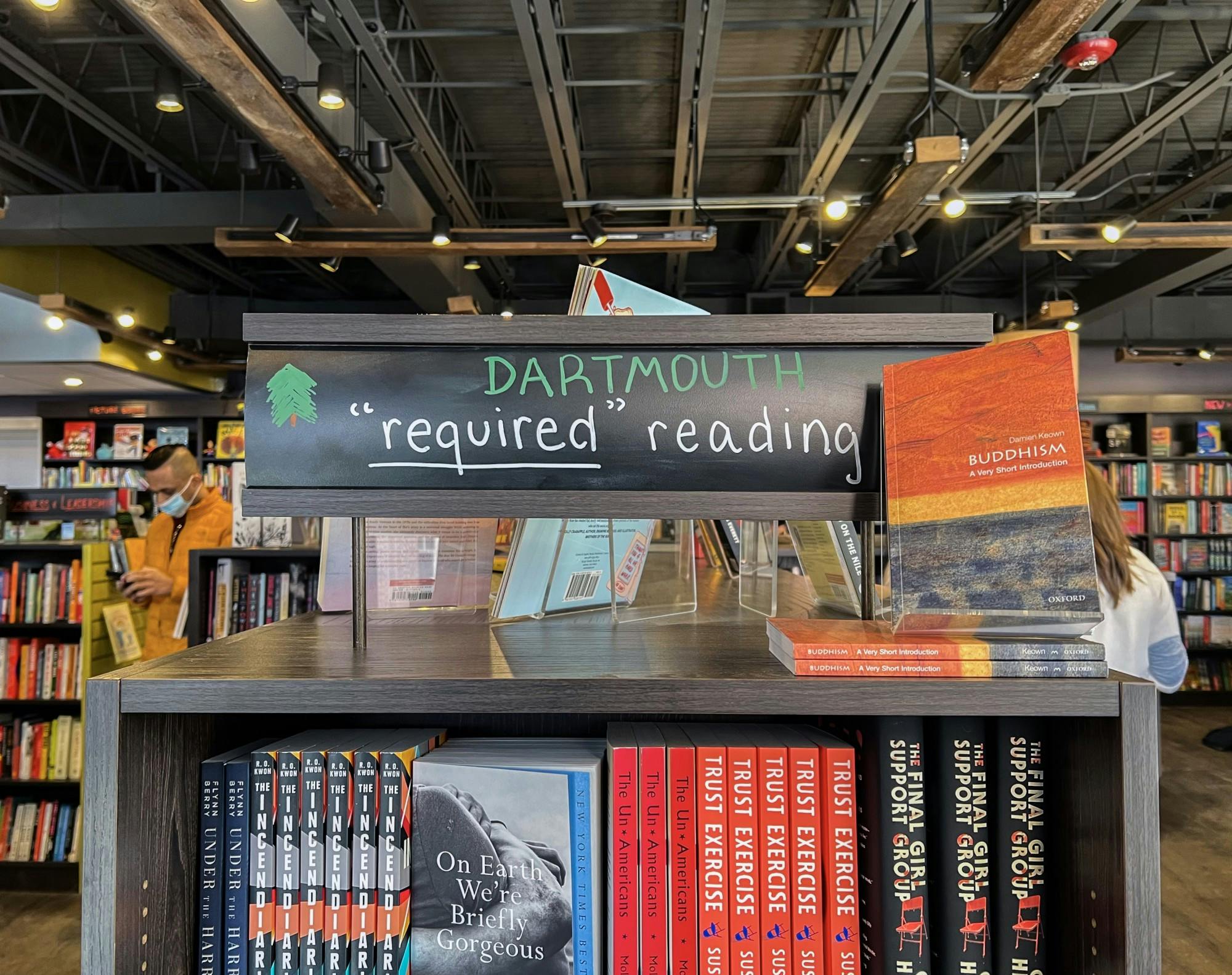Last fall, Still North Books & Bar began a program that makes it more convenient for students to purchase books — with the exception of textbooks — required for various classes in Dartmouth’s English and creative writing department.
Still North owner Allie Levy ’11 said that although the bookstore has been coordinating with individual professors to provide course books since it opened, this collaboration marks the first partnership between the bookstore and a department at the College.
English department administrator Kate Gibbel said that professors in the English department are “very excited” that Still North is providing students with the option to purchase course books locally. According to Gibbel, while instructors are assembling the syllabi for their classes, they are asked to fill out a spreadsheet of the texts students will need to order, which is then passed on to Still North. The bookstore then orders copies of the texts for students to purchase.
Levy said that she has seen significant student interest in the program, and sales from course books sold at the beginning of this winter term helped to offset the normal slowdown in retail sales in January. She added that she hopes that the program may expand to other departments in the future.
“For right now, it’s just the English department and a handful of professors in other departments,” Levy said. “But we’re working on growing that.”
Levy said that Still North does not stock textbooks, and she does not know whether it will be feasible for them to do so in the future.
“We’re still a small local business,” she said. “We just wouldn’t have the bandwidth for it. We would also have to charge more, so it’s often just not worth it financially for either students or for the shop to be offering textbooks.”
Gibbel said that because some departments rely on traditional textbooks more than others, not all of them will benefit from participating in Still North’s program.
“It’s harder for the bookstore to stock neuroscience textbooks than to order a trade book — like a novel, for example, that might be needed in creative writing class,” Gibbel said.
Since Wheelock Books closed in early 2019, Dartmouth students have not had a local source for textbooks. Levy said that Still North is not trying to fill the void Wheelock Books left, in part because she does not think there is a void that needs to be filled.
“I think most students have changed their buying habits for textbooks,” she said, citing affordability and accessibility as the reasons why more students may be renting textbooks or purchasing eBooks.
Michelle Kim ’22 said that since her junior year, she has exclusively used PDFs of the textbooks she needs for her classes.
Kim, who purchased a textbook from Wheelock Books as a freshman, said she was “shocked” at how expensive it was. She added that she purchased the book with the intent of returning it at the end of the term through Wheelock Books’ “sell-back program,” but the store closed down before she could do so.
If there were a convenient local source of physical textbooks, Kim said, price would still factor into her decision to buy from it or continue shopping online.
“I guess it would depend on how much the cost is,” she said. “If I could rent [textbooks] for a reasonable price each term, I feel like I might opt for the physical textbook.”
Colleen Halleck ’25 noted that she prefers using physical textbooks and would like to be able to buy them locally. She added that it would be helpful to be able to get the specific books she needs exactly when she needs them, and to inspect their quality before making a purchase.
“It’d be nice to have something on campus directly, like run through the school, or just have some local business that wants to provide [textbooks],” Halleck said.
Gibbel said that another benefit of Still North’s book program is that it fosters relationships between the College and the town. She added that because Still North labels the books it sells that are being taught in Dartmouth courses, “more community members have been interested in purchasing them.”
Levy said that strengthening those relationships was one of her goals for starting the program.
“I hope that we can foster an appreciation for physical books and for supporting local businesses, while also making peoples’ lives a little bit easier,” she said.




